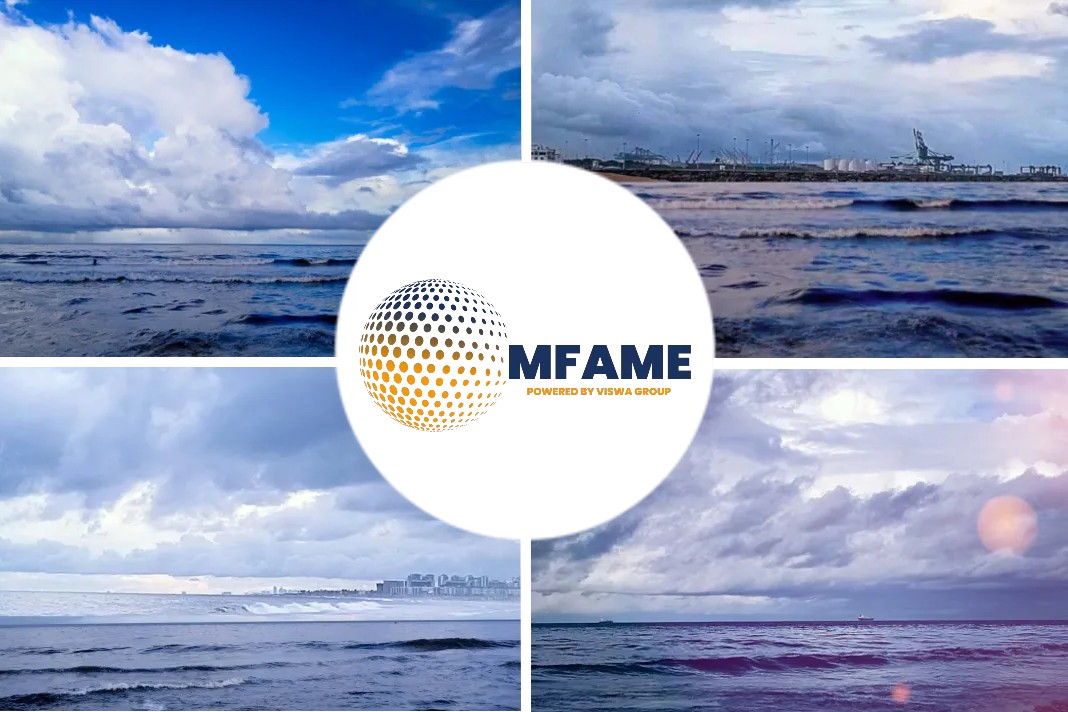 After another month of high demand, over-stretched infrastructure and difficult negotiations for shippers, long-term contracted ocean freight rates now stand 85.5% higher than at this point last year, says an article published on xeneta website.
After another month of high demand, over-stretched infrastructure and difficult negotiations for shippers, long-term contracted ocean freight rates now stand 85.5% higher than at this point last year, says an article published on xeneta website.
Positions of power
The latest data comes courtesy of Oslo-based Xeneta, which crowd sources real-time rates from leading shippers to produce the Long-Term XSI® Public Indices, delivering detailed insights of the very latest market movements.
Those movements have been following a familiar trajectory throughout the course of 2021, with climbing rates fuelled by demand outpacing supply, supply chain disruption, and the ongoing impact of COVID-19.
“In the context of 2021, a 2.2% monthly increase in rates appears modest, but in any other year this is an excellent result for carriers,” notes Patrik Berglund, Xeneta CEO.
“Remember, this is yet another rise on the back of the largest ever monthly increase in July. So, while some may have been expecting – read ‘hoping for’ if you’re a cargo owner – an adjustment downwards, we’re seeing a further demonstration of the powerful position liner operators find themselves in. They really are holding all the cards… and winning big.”
Record revenues
August saw OOIL disclose a net profit of USD 2.8bn for the half-year, the best results in the group’s history, while Zim reported a net profit of USD 888m for the second quarter.
This figure is higher than the Israeli line’s accumulated total profits for the last five years, showcasing a spectacular turnaround.
The firm, like its peers, is now looking to expand to take advantage of what Berglund calls “red hot” market conditions.
Steady gains
August’s XSI® demonstrates that the heat is on across all major trading corridors, with every region seeing import and export benchmarks edging upwards.
In Europe imports rose by 0.5%, while exports climbed 3.4%. Although the pace of growth has slowed compared to recent months, it still leaves the respective benchmarks up 123% and 49.1% year-on-year.
Results in the Far East followed a similar pattern, with imports nudging up a further 0.8% (up 50.5% since August 2020) and exports jumping by 2.5% (a massive 115.5% up year-on-year).
The XSI® paints the same picture in the US, where imports increased by an additional 2.1% and exports climbed 0.6% month-on-month. The benchmarks now stand 67.2% and 16.8% up compared to the same time last year.
High Demand
“While we can’t be certain of a repeat of the astronomical monthly increases the industry has grown accustomed to, further gains are certainly not of the question,” he comments.
“There’s still a dearth of equipment, high demand and, worryingly, very congested ports that are choking up the supply chain for shippers and retailers.
For example, in Europe Maersk is advising customers of wait times up to 10 days at Antwerp, while Hapag-Lloyd reports that voyage delays have tripled in the first half of 2021 compared to the same period in 2020. A round trip between the Far East and Europe now takes approximately 100 days to complete. The situation isn’t much better in the US with wait times of five days (and increasing) at the Port of Los Angeles.”
The Xeneta CEO says landside infrastructure is “simply overwhelmed”, with the congestion tying up vessels , and their sought after containers, in an ever-worsening cycle of delays.
“With the holiday season logistical rush round the corner things may get worse before they get better,” concludes Berglund, “and that’ll have an obvious knock-on effect on rates. As ever, we’d advise all parties in the chain to keep up to date with the very latest intelligence to understand, and get value out of, this extraordinarily competitive marketplace.”
Summary
- After another month of high demand, over-stretched infrastructure and difficult negotiations for shippers, long-term contracted ocean freight rates now stand 85.5% higher than at this point last.
- August saw OOIL disclose a net profit of USD 2.8bn for the half-year.
- In Europe imports rose by 0.5%, while exports climbed 3.4%.
- Landside infrastructure is “simply overwhelmed”, with the congestion tying up vessels , and their sought after containers, in an ever-worsening cycle of delays.
Did you subscribe to our daily newsletter?
It’s Free! Click here to Subscribe!
Source: xeneta















